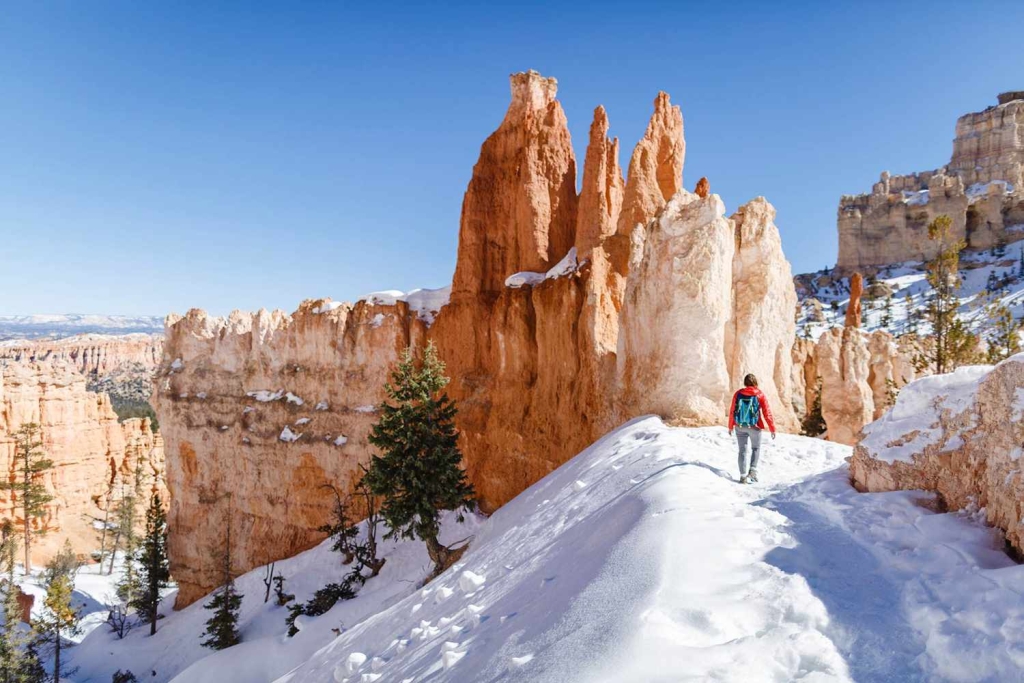Addiction Recovery in the Winter Months
Winter is often considered a season of hibernation. Many people opt to stay indoors and cozy up by the fireplace. However, for those on the journey of doing exercise for addiction recovery, the winter months can hold unique opportunities. Engaging in outdoor activities can help promote physical and mental well-being. But where should someone begin?
There are various winter outdoor activities that not only offer a breath of fresh air but also contribute positively to addiction recovery. Drawing on scientific research and expert advice, we’ll highlight some of the therapeutic benefits of these activities in the helpful list below.
Why Does Exercise for Addiction Recovery Matter for Brain Health?
In the realm of addiction recovery, incorporating regular exercise into one’s routine is increasingly recognized as a powerful tool for physical, mental, and emotional well-being. The benefits of exercise extend far beyond physical fitness, playing a crucial role in the holistic approach to recovery.
Exercise has a profound impact on neurotransmitters, the brain’s chemical messengers. Studies have shown that physical activity stimulates the release of endorphins, which are natural mood enhancers. Additionally, exercise can positively influence other neurotransmitters like serotonin and dopamine, contributing to improved mood and a sense of well-being. For individuals in addiction recovery, this can be particularly valuable as they seek healthier alternatives to the neurochemical rewards once provided by substances.
How Do Outdoor Activities Help Reduce Stress?
One of the common triggers for relapse in addiction recovery is stress. Exercise, particularly aerobic activities, has been shown to be a potent stress reliever. Physical activity helps to reduce levels of the body’s stress hormones, such as cortisol, and triggers the release of endorphins, promoting a sense of calm. By providing a healthy outlet for stress, exercise equips individuals in recovery with a proactive strategy to manage anxiety without turning to substances.
Furthermore, cognitive function and emotional regulation are key for reducing stress. Regular exercise has been linked to improved cognitive function, including enhanced concentration, memory, and executive functioning. For individuals in addiction recovery, this cognitive boost can aid in better decision-making and impulse control. Moreover, exercise helps regulate emotional responses, providing a constructive means of dealing with the ups and downs that are inherent in the recovery process.
Snowshoeing: A Tranquil Trek into Recovery
Snowshoeing is a low-impact, accessible winter activity that provides a perfect blend of exercise and solitude. Research suggests that outdoor activities (like snowshoeing) can significantly reduce stress and improve mood, crucial elements in addiction recovery. The rhythmic movement and connection with nature can serve as a meditative experience. Moreover, it can help individuals find a sense of inner peace. Exercise for addiction recovery can be as much fun as it is good for your health!
Skiing: Carving the Path to Recovery
Whether it’s downhill skiing or cross-country skiing, this winter sport offers not only an adrenaline rush but also a sense of accomplishment. Studies have shown that engaging in challenging physical activities, like skiing, can enhance the release of endorphins, the body’s natural mood lifters. Additionally, the focus required for skiing can divert attention away from cravings, providing a healthy outlet for individuals in recovery.
Ice Skating: Glide Through Recovery
Ice skating is a graceful and enjoyable winter activity that combines cardiovascular exercise with the joy of gliding on ice. Certain exercises, like aerobic type activities, can have a positive impact on mental health, including reducing symptoms of anxiety and depression. Ice skating, with its rhythmic movements, can contribute to a sense of balance and stability, both physically and emotionally.
Winter Hiking: Ascending to Recovery Heights
Hiking is a versatile outdoor activity that can be adapted to winter conditions, providing a unique way to connect with nature. Especially in the gorgeous terrain in Utah, spending time in natural settings can improve mood and reduce feelings of rumination. It goes without saying that this is particularly beneficial for individuals in addiction recovery. Winter hiking not only offers physical exercise but also the opportunity for introspection and mindfulness.
Snow Yoga: Finding Serenity Amidst the Snowflakes
Yoga is renowned for its holistic approach to well-being, combining physical postures, breathwork, and mindfulness. It’s one of the most often practiced exercise for addiction recovery. Snow yoga, practiced in the crisp winter air, adds an extra layer of rejuvenation to the experience. Regular yoga practice can:
- enhance mental well-being
- reduce stress
- contribute to emotional balance
All these factors make it an excellent complement to addiction recovery. At Pinnacle Recovery, we offer Yin Yoga as a part of our integrative therapy program. Slow-paced and restorative, yin yoga emphasizes holding postures and focused breathing. The benefits of these mind-body practices cannot be overstated for those in recovery.
Starting Your Healing Journey with Exercise for Addiction Recovery Today
Embracing winter outdoor activities can be a transformative experience for individuals on the path to addiction recovery. Whether it’s the serene solitude of snowshoeing, the exhilaration of skiing, the grace of ice skating, the contemplative nature of winter hiking, or the holistic benefits of snow yoga, these activities offer a unique blend of physical exercise, mental rejuvenation, and connection with nature.
As with any health-related endeavors, it’s essential for individuals to consult with healthcare professionals before embarking on new activities, especially if there are pre-existing health conditions. However, for many, the winter wonderland becomes not just a season of cold temperatures, but a season of warmth, growth, and recovery. So, bundle up, step outside, and let the snowy landscapes become the backdrop to your journey toward healing.
Remember, the key to successful addiction recovery often involves a holistic approach that addresses physical, mental, and emotional well-being. Winter outdoor activities provide a gateway to achieving that balance, offering a natural and invigorating way to support the recovery journey. To begin your addiction recovery journey, get in touch with the team at Pinnacle Recovery today.






